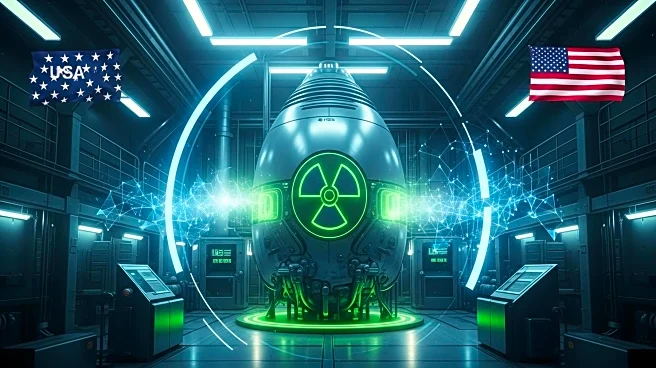What's Happening?
During President Trump's state visit to the UK, the United States is set to sign significant nuclear power agreements with the United Kingdom. These agreements aim to build new nuclear plants and reduce reliance on Russian nuclear fuel by 2028. The deals involve partnerships between American and British companies, including X-energy and Centrica, to construct advanced modular reactors. The agreements are part of a broader effort to enhance global energy security and strengthen nuclear supply chains across the Atlantic.
Why It's Important?
The nuclear power agreements between the US and UK are crucial for energy security and independence from Russian nuclear fuel. They represent a strategic move to diversify energy sources and promote nuclear energy as a sustainable alternative. The partnerships are expected to create jobs and drive economic growth, while also addressing environmental concerns. The agreements highlight the importance of international cooperation in achieving energy goals and reducing geopolitical risks associated with reliance on foreign energy sources.
What's Next?
The implementation of the nuclear power agreements will involve the construction of new plants and the development of infrastructure to support nuclear energy. The partnerships may lead to further investments and collaborations in the energy sector, with potential implications for energy policy and regulation. The agreements could also influence the global energy landscape, as other countries may seek similar partnerships to enhance their energy security. The focus on nuclear energy may prompt discussions on its role in addressing climate change and achieving sustainability goals.
Beyond the Headlines
The nuclear power agreements reflect broader geopolitical dynamics, including the strategic importance of energy independence and security. They raise questions about the role of nuclear energy in the transition to sustainable energy sources and the potential environmental impacts. The agreements may also influence cultural perceptions of nuclear energy and its acceptance as a viable solution to energy challenges.










